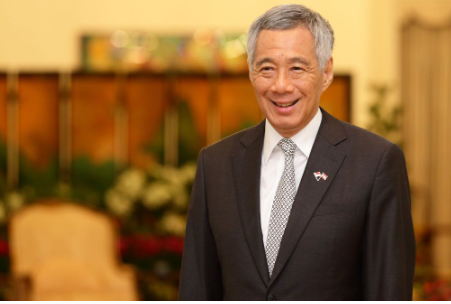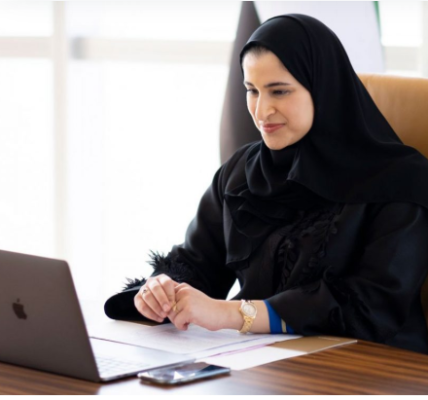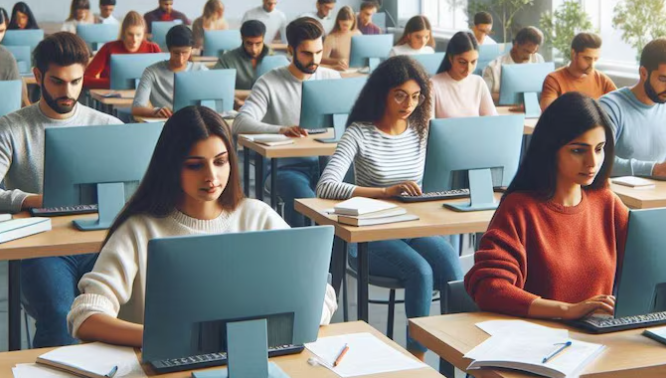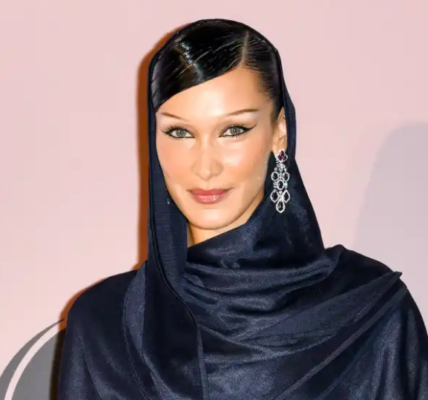Lee Hsien Loong:Shaping Singapore’s Future Through Pragmatic Leadership

Dato Laila Utama Dato’ Lee Hsien Loong (born 10 February 1952) is a prominent Singaporean politician and former brigadier-general who has served as a senior minister since 2024. He was the third prime minister of Singapore from 2004 to 2024 and has been the secretary-general of the People’s Action Party (PAP) since 2004. Lee has represented the Teck Ghee division of Ang Mo Kio GRC as a member of Parliament (MP) since 1991, previously serving the Teck Ghee SMC from 1984 to 1991.
Early Life and Education
Lee Hsien Loong was born on 10 February 1952 at KK Women’s and Children’s Hospital in Singapore, during the British colonial period. He is the eldest son of Lee Kuan Yew and Kwa Geok Choo, with roots tracing back to Dabu County in China through his father and to Tong’an District and Longhu through his mother. Lee’s early education took place at Nanyang Primary School, Catholic High School—where he played clarinet in the school band—and National Junior College.
In 1971, he received the President’s Scholarship and Singapore Armed Forces Overseas Scholarship, which allowed him to study mathematics at Trinity College, Cambridge. Excelling academically, he became the Senior Wrangler in 1973 and graduated in 1974 with a first-class Bachelor of Arts in mathematics and a distinguished diploma in computer science. His tutor described him as “the brightest mathematician he had admitted to the college,” while Béla Bollobás noted that he had the potential to be a world-class research mathematician. However, influenced by his father, Lee chose to pursue a career in politics. Reflecting on this decision before his resignation as prime minister in 2024, he expressed no regrets, citing a sense of duty to contribute to Singapore’s success. He later earned a Master of Public Administration from Harvard’s John F. Kennedy School of Government in 1980.
Military Career
Lee Hsien Loong began his military career in the Singapore Armed Forces (SAF) in 1971, serving as a commissioned officer from 1974 to 1984. During this time, he held several key positions, including Director of the Joint Operations and Plans Directorate and Chief of Staff of the General Staff. In 1978, he attended the United States Army Command and General Staff College at Fort Leavenworth.
Lee’s rapid ascent in the military saw him become the youngest brigadier-general in Singapore’s history at just 32 years old in July 1983. He notably led the rescue operations following the Sentosa cable car disaster and commanded the 23rd Battalion Singapore Artillery before transitioning to a political career in 1984.
Early Political Career
In the mid-1980s, Lee emerged as a pivotal member of the People’s Action Party (PAP) leadership transition, as his father, Lee Kuan Yew, prepared to step down as prime minister. Elected as a Member of Parliament for Teck Ghee SMC in 1984 at age 32, he quickly took on significant roles, serving as Minister of State for Trade and Industry and Defence.
In 1985, he chaired an economic committee that proposed crucial changes to revive Singapore’s economy, including tax reductions and a consumption tax. By 1987, he had become Minister for Trade and Industry and Second Minister for Defence.
PAP Youth Committee
In 1986, Lee became the first chairman of the PAP Youth Committee, aiming to engage younger Singaporeans in the party and encourage diverse opinions to prevent potential opposition. This initiative was designed to provide a platform for youth involvement in shaping the future of the nation.
Deputy Prime Minister
On 28 November 1990, after Goh Chok Tong succeeded Lee Kuan Yew as prime minister, Lee became one of two deputy prime ministers while continuing as Minister for Trade and Industry. Following a lymphoma diagnosis in 1992, he took a break for treatment but maintained his deputy role during his recovery.
In 1998, he was appointed chairman of the Monetary Authority of Singapore and became Finance Minister in 2001. Faced with a growing budget deficit, he proposed a GST increase from 3% to 5%, which was implemented in January 2004.
Visit to Taiwan
In July 2004, Lee visited Taiwan, a move that drew diplomatic ire from China. The trip was arranged in a personal capacity prior to his official assumption of the premiership to better understand Taiwan’s situation. The Chinese government protested, viewing the visit as a potential endorsement of Taiwanese independence. Despite the backlash, Lee later clarified the necessity of standing firm on Singapore’s interests.
Prime Minister (2004–2024)
Lee became prime minister on 12 August 2004, initiating several significant policies, including a five-day work week and an expansion of maternity leave. His proposal to build Integrated Resorts (IRs) marked a shift in Singapore’s approach to gambling, aimed at enhancing tourism despite initial public resistance.
During his first term, he launched the S$2.6 billion Progress Package before the 2006 election, which faced accusations of vote-buying despite overwhelming PAP victories.
Second Term and Economic Challenges
In the 2006 elections, Lee’s leadership saw a strong PAP performance, although the 2008 Great Recession significantly impacted Singapore’s economy, prompting substantial stimulus measures to mitigate unemployment.
Political Reforms
Lee promoted electoral reforms, validating the roles of Nominated Members of Parliament (NMP) and advocating for a more diverse parliamentary representation.
Third and Fourth Terms
In the 2011 elections, the PAP faced a noticeable decline in support. Despite winning a majority, the opposition Workers’ Party captured Aljunied GRC, marking a historic achievement. Lee noted the need for rejuvenation within the government and took steps to ensure more robust debates in Parliament.
Re-elected in 2015, his fourth term was marked by challenges such as the China-U.S. trade war and rising cybersecurity threats. He also addressed the need for a planned GST hike and introduced the Protection from Online Falsehoods and Manipulation Act (POFMA) amid concerns about disinformation.
Response to COVID-19
As COVID-19 cases emerged in early 2020, Lee’s government implemented a “circuit breaker” lockdown to control the spread of the virus. The government unveiled multiple stimulus packages to support the economy during the pandemic.
Fifth Term and Transition
After the 2020 elections, Lee was re-elected but faced setbacks with the opposition gaining ground. Acknowledging this shift, he committed to more open parliamentary discussions and recognized the need for a succession plan. He announced plans to hand over leadership to Lawrence Wong by November 2024.
Senior Minister (2024–Present)
On 15 May 2024, Lee stepped down as prime minister and was appointed as Senior Minister in Wong’s cabinet, while remaining active in various national councils.
Key Points about Lee Hsien Loong’s Political Career
- Entry into Politics: Transitioned into politics in 1984, winning election to the Teck Ghee SMC.
- Representation: Continued to represent Teck Ghee within the Ang Mo Kio GRC after the ward’s dissolution in 1991.
- Key Roles: Served as Deputy Prime Minister, Minister for Finance, Minister for Trade and Industry, and Second Minister for Defence under Lee Kuan Yew and Goh Chok Tong.
- Prime Minister: Became prime minister in August 2004.
- Significant Reforms:
- Implemented a five-day work week.
- Extended maternity leave.
- Tourism Development: Initiated the development of Marina Bay Sands and Resorts World Sentosa to boost tourism.
- Economic Recovery: Successfully led the country’s recovery following the 2008 Great Recession.
- Political Reforms: Oversaw reforms that increased online activism and the number of Non-Constituency Members of Parliament (NCMPs).
- COVID-19 Response: Managed the government’s response to the COVID-19 pandemic and its economic fallout from 2020 to 2021.
- International Relations: Addressed the implications of the Russian invasion of Ukraine in 2022, making Singapore the only Southeast Asian country to impose sanctions on Russia.
- Legal Reform: Repealed Section 377A, legalizing same-sex sexual activity between men.
Foreign Policy
China
- Tianjin Eco-City: Joint project for an eco-friendly city in China.
- Government Cooperation: Extensive collaboration on projects like Suzhou Industrial Park and Chongqing Connectivity Initiative.
- Free Trade Agreement: First Asian country to sign a free trade agreement with China in 2009; upgraded in 2018 to include e-commerce, fair competition, and environmental regulations.
- Belt and Road Initiative: Singapore is the largest investor and an early proponent, signing a memorandum of understanding in April 2018.
- Trade Relations: China has been Singapore’s largest trading partner since 2013, with trade reaching US$137.1 billion in 2017.
- One-China Policy: Singapore formally adheres to the One-China policy, reaffirming relations with Taiwan despite tensions.
- Military Cooperation: Continued military training in Taiwan under Project Starlight; signed a defense agreement in October 2019 to enhance military exercises.
- Tensions: Relations cooled in 2016 over the South China Sea arbitration case; the “Terrex incident” in 2016 led to the seizure of military vehicles, seen as a warning by China.
United States
- Strong Partnership: Close defense and political relationship; significant arms supplier, with US$7.34 billion in active sales as of 2020.
- Defense Pact: Memorandum of understanding since the 1990s allows US access to Singapore’s military bases.
- Strategic Framework Agreement: Signed in 2005, recognizing Singapore as a “Major Security Cooperation Partner.”
- Expanded Cooperation: Upgraded agreements under Obama and Trump administrations for humanitarian aid, cyber defense, and more.
- Trade Relations: Largest foreign investor in Singapore, with US$15 billion in 2017; implemented the Singapore-United States Free Trade Agreement in 2004.
Malaysia
- Improved Relations: Efforts to enhance economic integration and infrastructure links; annual Leaders’ Retreat initiated since 2010.
- Joint Projects: Investments in Iskandar Malaysia; resolution of longstanding railway disputes in 2010.
- Infrastructure Plans: Revived plans for MRT connections and high-speed rail projects between Singapore and Kuala Lumpur.
- Disputes: Ongoing disputes over water supply, land reclamation, and maritime claims; collaboration in transnational crime prevention.
- COVID-19 Collaboration: Joint efforts to combat the pandemic; recommencement of the JB-SG RTS project in July 2020.
Controversies
Condominium Rebates
- Allegations of receiving special discounts on luxury condominiums linked to the Lee family’s connections; an investigation was launched.
Ministerial Salary
- Lee’s salary sparked public discontent; received a significant pay cut in 2012 but remained the highest-paid head of government until 2024.
Allegations of Nepotism
- Accusations of nepotism due to familial connections; legal action taken against media claims suggesting his rise was unmerited.
Oxley Road House Dispute
- Dispute with siblings over the fate of their father’s house; allegations of misuse of power were denied; public debate ensued.
1MDB Defamation Case
- Lee sued a critic for sharing claims of collusion regarding the 1MDB scandal; case concluded with a defamation ruling against the critic.
Honors and Awards
International Honors
- Olympic Order (Gold): Conferred by the International Olympic Committee on 13 August 2010.
National Honors and Medals
- Public Administration Medal, Gold (Military): Pingat Pentadbiran Awam, Emas.
- Singapore Armed Forces Long Service and Good Conduct Medal: Recognizing 10 years of service.
- Singapore Armed Forces Good Service Medal: Awarded for exemplary service.
Foreign Honors and Medals
- Peru:
- Order of the Sun of Peru: Gran Cruz con Brillantes, awarded on 22 November 2008.
- Brunei:
- Sultan of Brunei Golden Jubilee Medal: Awarded on 6 October 2017.
- The Most Esteemed Family Order of Laila Utama (D.K.): Bestowed on 16 July 2022.
- Malaysia:
- Grand Commander of the Order of the Crown of Johor (First Class): Dato’ Sri Paduka Mahkota Johor (SPMJ), awarded on 6 May 2022.


































